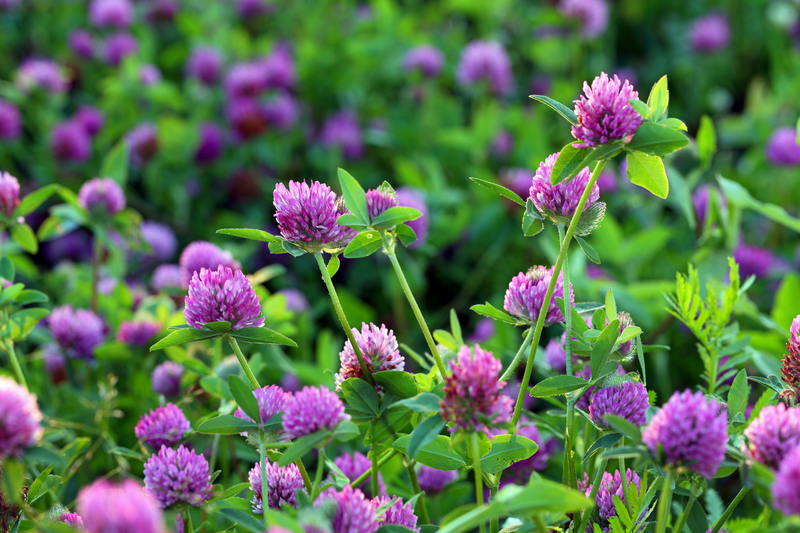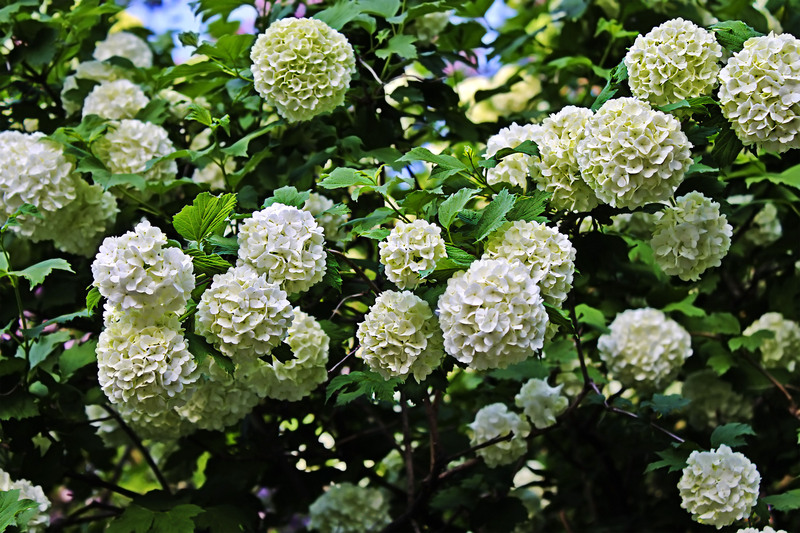Explore the world of herbs: your guide to growing a perfect garden
Posted on 04/06/2025
Explore the World of Herbs: Your Guide to Growing a Perfect Garden
Imagine stepping into your backyard, balcony, or kitchen and plucking fresh, aromatic leaves to elevate your meals, brew enticing teas, or craft soothing salves. Welcome to the enchanting world of herbs--a journey combining flavor, fragrance, and natural healing. Whether you're a seasoned gardener or taking your first steps, growing a thriving herb garden is simpler and more rewarding than you might think. In this comprehensive guide, you'll uncover essential herb gardening techniques, practical advice, and creative inspirations to transform any space into your own lush sanctuary.
Why Grow Your Own Herbs?
Growing herbs at home is about much more than culinary convenience. Here's why herb gardening is a game changer:
- Maximum Freshness: Plucking herbs moments before use means unbeatable flavor and nutritional value.
- Cost-Effective: Even a small herb garden yields a bountiful, year-round supply, saving money at the grocery store.
- Environmental Benefits: Home-grown herbs minimize packaging waste and reduce your carbon footprint.
- Health and Wellness: Many herbs hold medicinal properties, supporting immunity and well-being.
- Therapeutic Hobby: Tending to your herb patch is proven to lower stress, boost mood, and foster creativity.

Understanding the Different Types of Herbs
The herbal world is vast, but most herbs fall into three main categories based on their growing cycles. Understanding this helps you orchestrate a successful herb garden:
- Annual Herbs: These complete their life cycle in a single season (e.g., basil, cilantro, dill).
- Perennial Herbs: These come back year after year (e.g., mint, thyme, rosemary, oregano).
- Biennial Herbs: These grow foliage the first year and flower the next (e.g., parsley, caraway).
By mixing these types, your garden remains bountiful throughout the year!
Choosing the Best Herbs for Your Garden
Consider Your Climate
Some herbs thrive in specific conditions. For instance, rosemary and lavender prefer hot, dry weather, while cilantro and parsley are happiest in cooler, moister climates.
Space and Sunlight Requirements
Most herb plants love at least 6 hours of direct sunlight daily. If you have limited space, herbs can thrive in pots on a windowsill or balcony.
Top 10 Easy-to-Grow Herbs for Beginners
- Basil - Sweet, aromatic, and perfect for salads, pasta, and pesto.
- Chives - Mild onion flavor, great in omelets and dips.
- Mint - Refreshing in drinks, desserts, or teas. *Note: Plant in containers--it's invasive.*
- Parsley - Adds freshness to almost any dish.
- Cilantro (Coriander) - Essential for salsas and Asian dishes.
- Dill - Classic pairing with fish and vegetables.
- Oregano - Mediterranean must-have for pizzas, pastas, and sauces.
- Rosemary - Woody flavor for roasts and stews.
- Sage - Earthy herb, wonderful in stuffing or with poultry.
- Thyme - Versatile and easy, ideal for soups or roasts.
How to Start Your Herb Garden: Step-by-Step Instructions
1. Choose Your Location
Select a sunny patch in your yard, a windowsill, or a balcony with at least 6 hours of sunlight. Herbs planted indoors should be close to a south-facing window for optimal light exposure.
2. Soil Preparation
- Drainage: Ensure pots or beds have good drainage. Herbs hate soggy roots.
- Soil Mixture: Use a well-draining, organic potting mix enriched with compost.
- pH Level: Most herbs prefer slightly alkaline to neutral soil (pH 6.0-7.5).
3. Planting Your Herbs
From Seed: Sow seeds according to packet instructions; some need light to germinate, while others require covering.
From Cuttings or Transplants: Many herbs are easily propagated by cuttings (e.g., mint, rosemary) or bought as small plants.
4. Watering and Feeding
- Water: Most herbs prefer slightly dry soil; overwatering is the main killer.
- Feeding: Light feeding with compost tea or diluted organic fertilizer is ideal--herbs grown for flavor need less fertilizer than other garden plants.
5. Mulching and Pest Management
- Mulch: Organic mulch like straw or bark helps retain moisture and suppress weeds.
- Pests: Most common pests are aphids and whiteflies. Neem oil, soapy water, or encouraging beneficial insects (like ladybugs) keep them at bay.
6. Harvesting Herbs
- Timing: Harvest leaves in the morning, just after dew evaporates but before the heat extracts their essential oils.
- Technique: Pinch or snip stems just above a leaf node to encourage bushier growth.
Designing Your Herb Garden: Creative Ideas
Classic Herb Bed
Arrange herbs in traditional rectangular or circular beds. Group by height, placing taller perennials like rosemary or sage at the back or center, and low-growing spreaders like thyme at the edges.
Container Herb Garden
Perfect for urban dwellers! Use pots, window boxes, or vertical planters to maximize limited space. Choose containers with drainage holes and avoid overcrowding plants.
Herb Spiral
Build a spiral mound using bricks or stones, filling with soil. The top stays dry for Mediterranean herbs, while the base remains moister for parsley and mint.
Companion Planting with Herbs
Herbs not only enhance your food but also protect vegetables by repelling pests. Try growing basil with tomatoes, or plant chives among carrots to deter aphids.
Herb Garden Care Through the Seasons
Spring
- Sow seeds indoors for tender annuals like basil and dill.
- Prune overwintered perennials to promote new growth.
Summer
- Keep soil moist and mulch to retain water.
- Harvest regularly to keep plants productive and bushy.
Fall
- Collect seeds for next year's planting.
- Trim back perennials and bring tender pots indoors if you live in a frosty region.
Winter
- Grow herbs like chives or parsley on sunny windowsills.
- Cover outdoor perennials with mulch to protect roots from freezing.
Pro Tips for a Thriving Herb Garden
- Don't overcrowd: Give each herb sufficient space for airflow and root spread.
- Rotate: Change the position of annual herbs each year to prevent soil-borne diseases.
- Label plants: Use markers so you don't mix up similar-looking seedlings.
- Pinch and prune: Regular pinching encourages branching and lush foliage.
- Watch for blooms: Once most herbs flower, their leaves lose flavor. Pinch off buds where possible.
Harvesting and Preserving Your Herbs
Fresh Use
Snip what you need and rinse gently. Fresh herbs are potent--start with small amounts and adjust to taste.
Drying Herbs
- Hang bunches: Tie stems and hang upside down in a warm, airy spot.
- Dehydrate: Use a dehydrator or oven on low heat for delicate leaves.
Freezing Herbs
- Chop herbs and freeze in ice cube trays with water or olive oil for instant flavor year-round.
Making Herb Infusions and Vinegars
- Steep sprigs in vinegar or oil to capture flavors for months.
Creative Uses for Your Homegrown Herbs
- Culinary Delights: Enhance soups, stews, salads, and desserts with fresh or preserved herbs.
- Herbal Teas: Brew infusions with mint, chamomile, lemon balm, and more.
- Natural Remedies: Use calendula, sage, or thyme in homemade salves and tinctures.
- Beauty Products: Create scrubs, shampoos, and creams with lavender or rosemary.
- Crafts and Decor: Weave aromatic wreaths, sachets, or potpourri with dried herbs.

Frequently Asked Questions About Herb Gardening
Do herbs need full sun?
Most herbs thrive with at least 6 hours of direct sunlight, but some (like mint and parsley) tolerate partial shade.
Can I grow herbs indoors?
Absolutely! Choose a sunny windowsill or use grow lights, and ensure proper drainage to avoid overwatering.
Why are my herb leaves turning yellow?
This is usually due to overwatering, poor drainage, or lack of nutrients.
Is it better to grow herbs from seeds or plants?
For beginners, starting with small plants or cuttings is easier. Some herbs (like basil and cilantro) grow quickly from seed.
Conclusion: Start Your Herbal Journey Today
Exploring the world of herbs unlocks a universe of flavors, fragrances, and health benefits right at your fingertips. By following the practical steps outlined above, anyone can build a thriving, beautiful herb garden--indoors or out. Start simple, nurture your plants, and soon you'll not only enhance your meals but also enrich your daily life. Now is the perfect time to plant the seeds of your herbal adventure! Happy gardening!
Latest Posts
Crafting Nature's Art: Vertical Gardening
Inspiring Young Minds: Building a Playful and Safe Garden
Unlock your green thumb with container gardening

